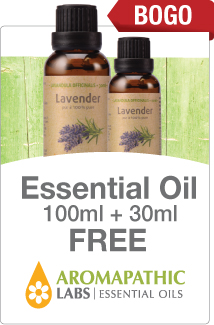Skin Infections
Updated Aug. 14th, 2019
The skin is the largest organ in our body. It completely encloses the rest of our tissues and helps to protect them against pathogens and toxins in the outside environment. Unfortunately, sometimes the integrity of the skin becomes compromised and this can allow for infection. Keeping the skin healthy is incredibly important to overall health. For more information, please see our Skin Health article.
Skin and Immunity
Normal skin provides a strong barrier against the invasion of pathogens. Thus, it is most commonly when the integrity of the skin is broken that infections occur. Things that can interrupt the protective integrity of the skin are: trauma, burns, pre-existing skin disease, poor hygiene, extremely dry skin, and impaired immune function.
TYPES OF SKIN INFECTIONS
Bacterial Infections
The most common skin infections are caused by two types of bacteria: called Staphylococcus aureus and Streptococcus pyogenes, which are commonly referred to as Staph and Strep respectively. More recently, an increasing number of cases have been caused by MRSA (methicillin resistant Staphylococcus aureus). There are a number of other organisms that can infect the skin, and generally these will cause pus at the site from the resulting immune response. The colour of the pus can help distinguish the infecting bacteria, so be sure to mention the colour to your healthcare practitioner. Acne is one of the most common skin infections, but is beyond the scope of this article. For more information on this condition, please see our Acne article.
Impetigo
Infection of broken skin with certain types of Staph (and less commonly Strep) can cause small pustules or larger blisters that rupture and leave behind a golden crust that appears much like dried honey. This type of infection is called impetigo. For more information, please see our Impetigo article.
Cellulitis
When skin infections become deeply rooted, they can spread beneath the surface and create a widening area of redness and inflammation. The skin becomes tight and looks stretched and shiny as the inflammation progresses, which is often accompanied by pain and tenderness. If the infection continues to spread then symptoms can progress to fever, chills, nausea, vomiting and a general feeling of being unwell. This makes it a risk for developing a blood infection that can spread throughout the body (sepsis). This type of infection is very serious and if you are suffering from these symptoms you should seek emergency medical attention immediately. Conventional treatment is to take blood cultures and do a course of antibiotics over 7-10 days.
Viral Infection - Warts
Although we initially think of viral infections as those that cause the common cold and the flu, warts are actually caused by a viral infection as well. The human papilloma virus causes a rough bump to grow on the skin, either alone or in clusters. Warts are more common in areas of repeated injury like the soles of the feet, or in those with reduced immune function. For more information on increasing the immune system, please see our Immune Support article. Be sure to avoid touching or picking at the wart as this can result in spread of the virus to other areas. For more information, please see our Warts article.
Fungal Infection - Ringworm and Candida
When fungi are able to infect the skin, it is often a sign of immunodeficiency. This can be due to an underlying disease state, or because of chronic stress. For more information, please see our Stress article. There are a number of different types of fungi that cause a variety of conditions such as: thrush (Candida), athlete's foot, jock itch, and ringworm (Tinea species). For more information, please see our Candida and Tinea articles.
Wound Care
If the skin does become damaged, it is essential to quickly clean and disinfect any broken skin. This can stop any infection from starting in the wound. Be sure to remove any foreign debris and wash it gently with warm water. Shallow wounds can be disinfected with rubbing alcohol or peroxide and covered with a sterile bandage. Bandages help to protect the skin against infection while the skin is allowed to heal over once more. For deeper wounds, be sure to seek the appropriate medical attention.
Prevention
Although some causes are unavoidable, there are some general tips that can help prevent skin infection. It is extremely important to do everything possible to maintain the integrity of the skin. Be careful to avoid trauma, and be sure to wear safety equipment during sports and activities. Wearing protective footwear while visiting public pools can help to protect against athlete's foot and warts. Washing the skin regularly using warm water and gentle soap can help to protect against infection. It is most important to wash hands frequently, especially when using public places and after being in contact with anyone carrying infection. Moisturizing daily can help to protect the skin against cracking, and peeling which can help to maintain skin integrity. For more information on how to protect your skin, please see our Skin Health article.
Treatment
Each particular skin infection may require a slightly different treatment protocol, so be sure to understand what type of infection you have before you begin treatment. If you are unsure, your healthcare practitioner can help to guide you. There are a number of supplements that can help prevent and treat infections, please see the list below for more information.























Thank you National Nutrition for this great article on skin infections and how to treat them naturally!
Hello Sharon,
You're welcome! We are glad you enjoyed this article and learned how to treat skin and topical infections naturally. There are many options if the infection isn't too severe, if so then it's always advised to seek guidance and assistance from your health care practitioner.
Stay healthy & well!